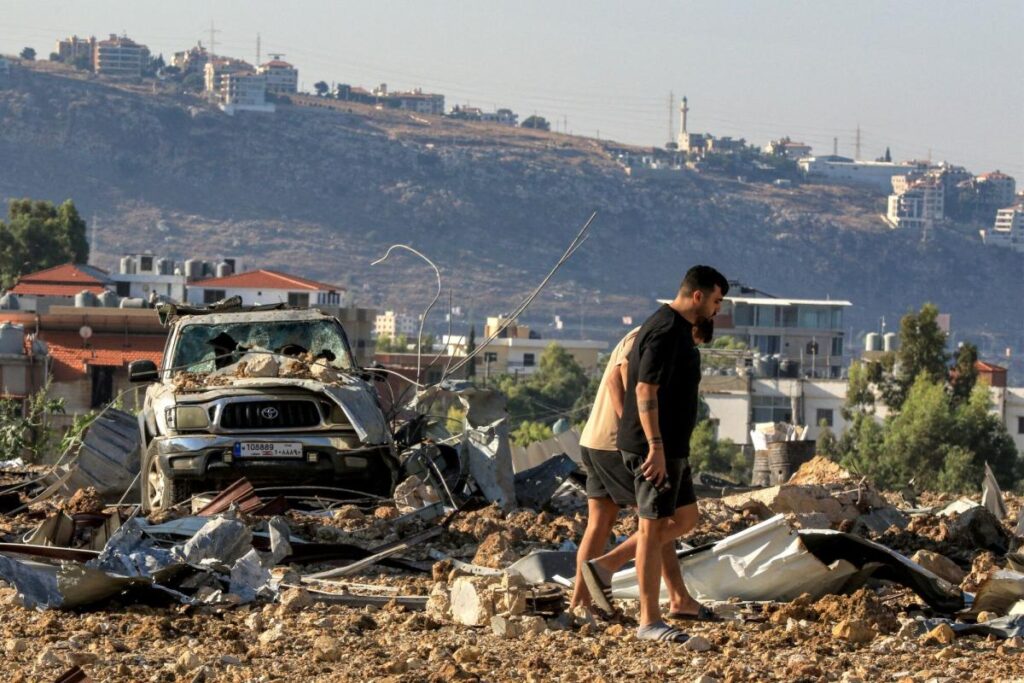(Bloomberg) — Hezbollah has shown flexibility in its response to a ceasefire proposal with Israel, Lebanon’s economy minister said, as world powers scramble to avoid an outright war between the two countries.
Most read from Bloomberg
“We feel that Hezbollah has shown a lot of flexibility in the past 24 hours,” Economy and Trade Minister Amin Salam told Bloomberg TV on Thursday.
The US, Europe and Arab countries are calling for a three-week ceasefire between Israel and Iran-backed Hezbollah. The deal could prevent an Israeli ground offensive in southern Lebanon and potentially end the war between Israel and Hamas in Gaza.
A key part of the deal would be to allow tens of thousands of displaced Israelis and Lebanese to return to their homes in the Israeli-Lebanese border area.
There have been “very positive messages from Hezbollah with the intention of preventing escalation,” Salam said. He communicated to Hezbollah and others “very serious messages about the consequences of such a large-scale war in Lebanon.”
There was no word from Hezbollah on whether the militant group would agree to a deal and stop firing rockets and missiles into Israel. Moreover, some far-right Israeli politicians say their government cannot agree to a ceasefire and give Hezbollah a chance to regroup.
Hezbollah began shelling Israel on October 8, a day after Hamas fighters swept into southern Israel, killing 1,200 people and taking 250 hostage, sparking the Gaza conflict. Hezbollah says it stands in solidarity with Hamas — both groups are designated terrorist organizations by the U.S. and have received funding and training from Iran.
Israel has stepped up attacks on Hezbollah over the past 10 days. Israel says it has no choice after diplomatic efforts to halt the group’s attacks and get it to withdraw its fighters from the Israeli border failed.
Moribund economy
The escalation of hostilities is already worsening Lebanon’s economic situation. Before October, tourism was recovering, bringing in much-needed hard currency.
Now, the Lebanese economy is in a “very bad position,” Salam said. Hopes that Lebanon’s tourism and food industries would flourish have “vanished,” he said.
The small Mediterranean nation is in the grip of a crisis rooted in decades of corruption and mismanagement. Lebanon defaulted on about $30 billion in international bonds in March 2020, sending its economy into meltdown.
“Growth is not there at the moment,” the minister said. Foreign investment is “far away” and an extension of the Middle East conflict could push Lebanon to a point where there is “no return for the economy,” Salam said.
The Lebanese government has been in a state of emergency for more than three years and has no president because political parties cannot agree on who should be elected.
Moreover, policymakers are far from agreeing on how to restructure banks and implement other reforms needed to secure a loan from the International Monetary Fund.
In 2022, Lebanon reached a preliminary agreement with the IMF on a $3 billion loan, a deal that is contingent on a series of deeply divisive reforms. Lebanon has failed to meet half of its commitments to unlock the IMF program, Salam said, as political tensions have stymied efforts to implement changes.
(Updates ongoing.)
Most read from Bloomberg Businessweek
©2024 Bloomberg LP







